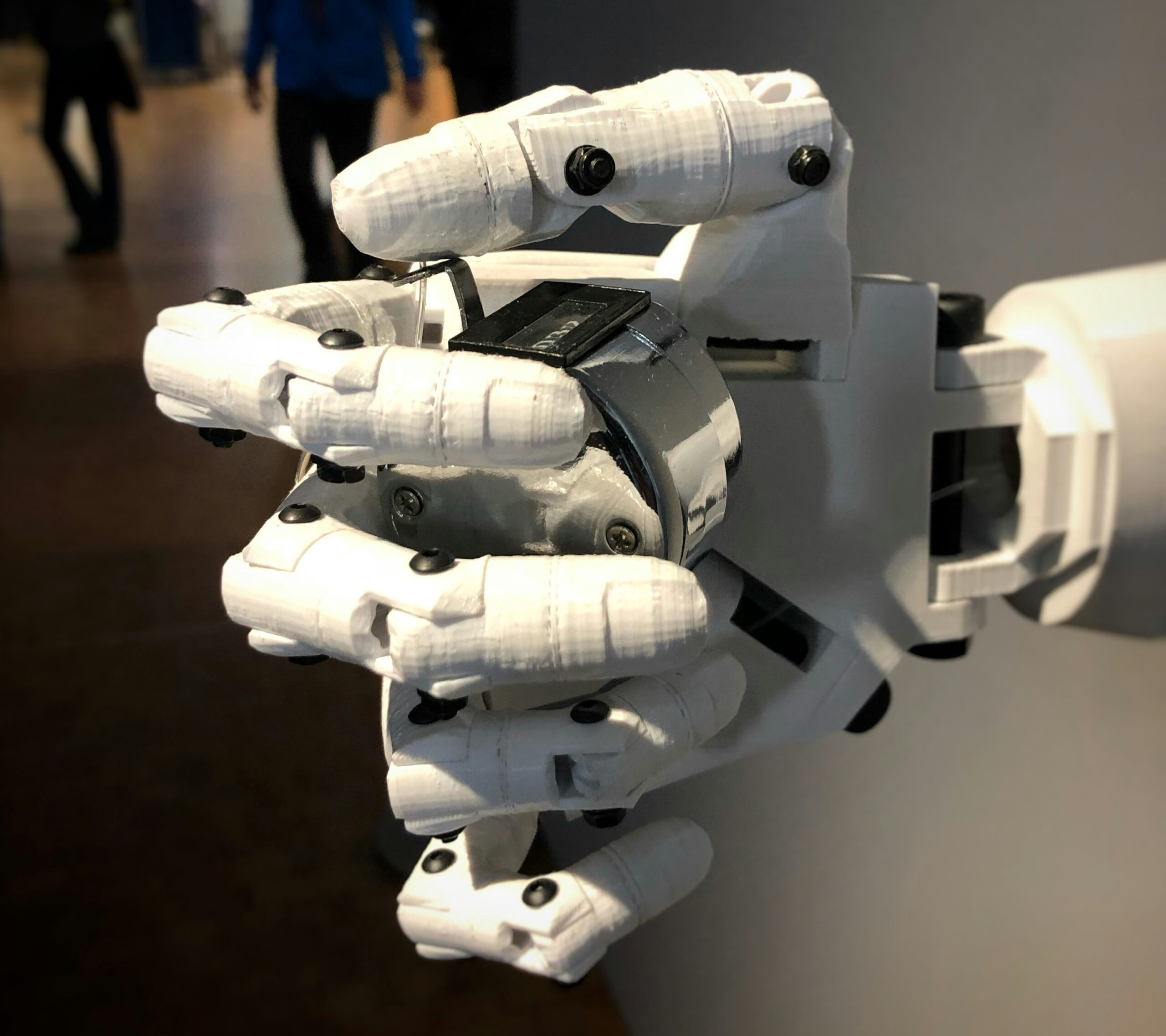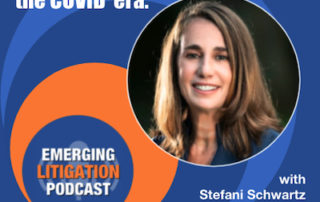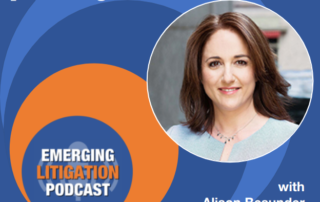Emerging Litigation Podcast
Employment Law in the COVID-19 Era with Stefani Schwartz
Employment Law in the COVID-19 Era with Stefani Schwartz Joining me to discuss this important subject is Stefani Schwartz, co-founder of the woman-owned employment-and-labor boutique Hatfield Schwartz in New Jersey. Stefani has devoted her legal career to representing employers in all aspects of employment law, including discrimination, harassment, retaliation, and wrongful termination matters. Stefani will be featured in the next issue of the Journal on Emerging Issues in Litigation, a collaborative project between HB and the Fastcase legal research family, which includes Full Court Press, Law Street Media, Docket Alarm and, most recently, Judicata. If you have comments or wish to participate in one our projects, or want to tell me how awesome Stefani is, drop me a note at Editor@LitigationConferences.com. We hope you enjoy the interview, and a guest appearance by Benny, her Portuguese Water Dog, you know, because she's working from home. Stefani also shares one retail customer's quick fix for forgetting her face mask. More of us are working from home and, given it often has advantages, it's an arrangement that is likely to continue for many of us. This raised the general question: Is your home officially "the office," with all the attendant rules and norms? What new risks do employers face? What new ways can employees find themselves in trouble? We're also getting vaccinated. But many are not. Can companies required employees to get the shot? Studies reveal that we're not all bearing the burden of remote working evenly. Who is carrying more of the load? Given these dramatic changes, should employers adjust their policies?
COVID-19 and the Courtroom with Alison Besunder
COVID-19 and the Courtroom with Alison Besunder Joining me is Alison Besunder on this timely and evolving subject. It’s based on her article — Crisis is the Mother of Change: How a Pandemic Sparked Progress in Courtroom Efficiency — which will be featured in the January 2021 issue of the Journal on Emerging Issues in Litigation. Alison brings extensive experience counseling clients on matters ranging from the simple to complex, helping them prevent future disputes through proactive planning and to resolve disputes that proceed to litigation. She is a frequent speaker on topics such as Estate Planning During Divorce, End of Life Decision Making, Cyber-Security for Lawyers, and Social Media and Ethics. She operated her own firm for several years and in 2019 joined Goetz Fitzpatrick LLP. The Journal is a collaborative project between HB and the Fastcase legal research family, which includes Full Court Press, Law Street Media, Docket Alarm and, most recently, Judicata. If you have comments or wish to participate in one our projects, or want to tell me how awesome Alison is, drop me a note at Editor@LitigationConferences.com. We hope you enjoy the interview. What efficiencies have been foisted upon our nation's courts as a result of the COVID-19 pandemic? What has worked and what has not? Are we going to see permanent implementation of things like webcam hearings and virtual trials?
A Shameless Plug for Our Content Services
Your content marketing is everything you’ve ever dreamed of. Right?

Critical Legal Content was founded by Tom Hagy, former Editor & Publisher of Mealey’s Litigation Reports and VP at LexisNexis, founder of HB, current litigation podcaster and editor-in-chief. CLC’s mission is to help smaller firms and service providers not only create content — blogs, articles, papers, webinars, podcasts (like the stuff on this site) — but also to get it out there. How? Via social media, this website, your website, and potential via our podcast and journal which we publish in collaboration with vLex Fastcase and Law Street Media. The goal is to attract readers and dizzy them with your brilliance.
*Inspired by actual events.
Create content like a real legal publisher.












